“Education must build character, enabling learners to be ethical, rational, compassionate, and caring, while simultaneously preparing them for gainful, fulfilling employment,” notes the National Education Policy 2020 report.
Reflecting the New Education Policy’s emphasis on experiential learning and critical thinking, Bengaluru witnessed a dynamic two-day event where young changemakers came together to showcase their community-centric innovations.
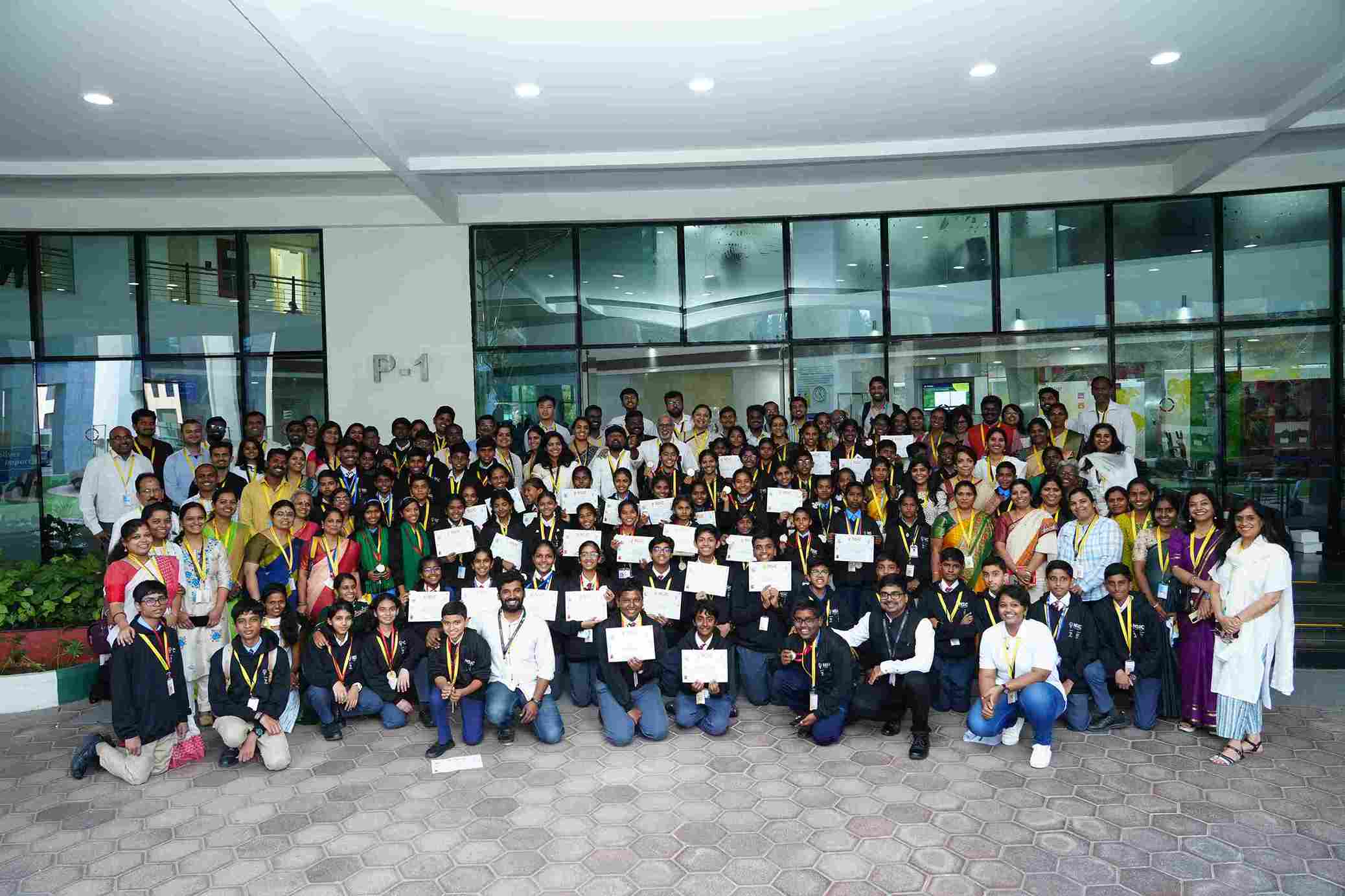
The eVidyaloka Trust’s National Student Innovation Challenge (NSIC) once again united young minds nationwide for its seventh season on 23 and 24 January, 2024. An event that not only celebrated the spirit of connecting rural and urban India but also highlighted the integration of Sustainable Development Goals (SDGs) at the local level.
Designed to develop students’ abilities in critical thinking, leadership, and creative problem-solving through teamwork, NSIC was launched in 2017. An initiative by eVidyaloka Trust that uses technology to tackle educational challenges, this season saw more than 850 registrations.
From showcasing an innovative and affordable water purifier addressing water scarcity and pollution, and reduction of iron content in water (SDG 6 – Clean Water and Sanitation) to a remarkable AI-driven agricultural tool aimed at improving crop yields (SDG 2 – Zero Hunger), the event showcased teams sharing impactful ideas to address pressing real-world challenges.
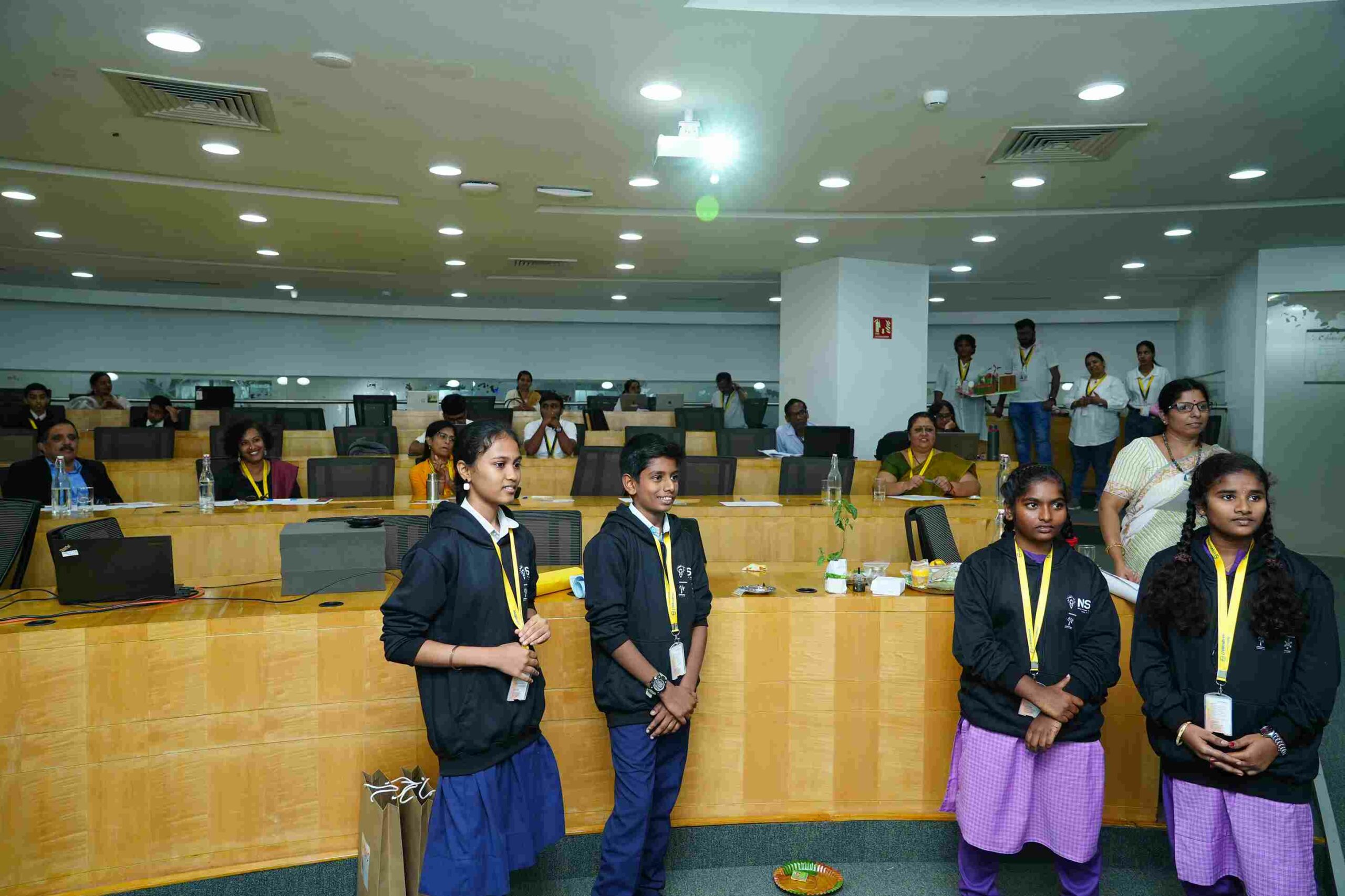
What truly sets NSIC apart?
At the heart of the NSIC is a powerful concept — uniting rural and urban students from Classes 7 and 8 to innovate together.
Each team, guided by an online mentor volunteer from around the world, dives into localising an SDG. Over three to four months, they work online, combining their unique insights and experiences. This journey of collaboration and learning helps them transform global goals into actionable, community-centric solutions. This then culminates in a showcase of their work in various formats — documents, videos, or PowerPoint presentations — a testament to their micro-leadership skills.
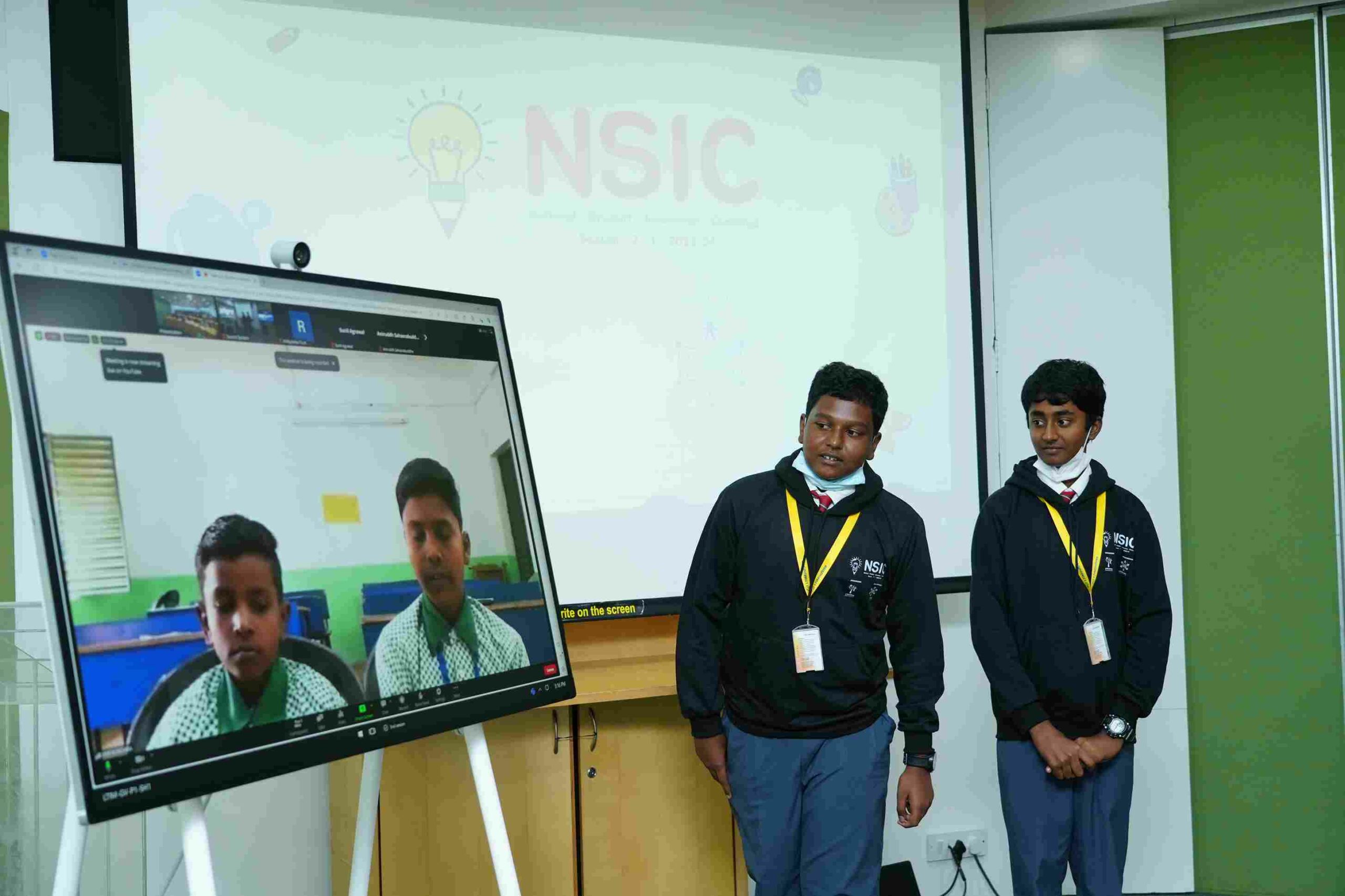
“NSIC ignites a spark in young minds to embody the ‘changemaker mindset’ as it has become a platform where children are trying to bring implementable solutions for a perennial problem, and in this process have become the influencers of their community. The digital bridge between rural and urban areas, along with the guidance from online volunteer mentors, class assistants, and field teams, plays a crucial role in this transformative experience,” said Swapna Ramkumar, Project Head, NSIC.
And this growth mindset was beautifully illustrated in the innovative projects the students presented at NSIC Season 7. Their projects spanned various themes — transforming plastics into versatile jackets, engineering PVC pipe models for farming, and enhancing educational access through public transport initiatives.
The projects showcased by the teams, localised SDGs such as SDG 2: Zero Hunger; SDG 3: Good Health and Well-being; SDG 4: Quality Education; SDG 5: Gender Equality; SDG 6: Clean Water and Sanitation; SDG 7: Affordable and Clean Energy; SDG 8: Decent Work and Economic Growth; SDG 10: Reduced Inequalities; SDG 13: Climate Action.
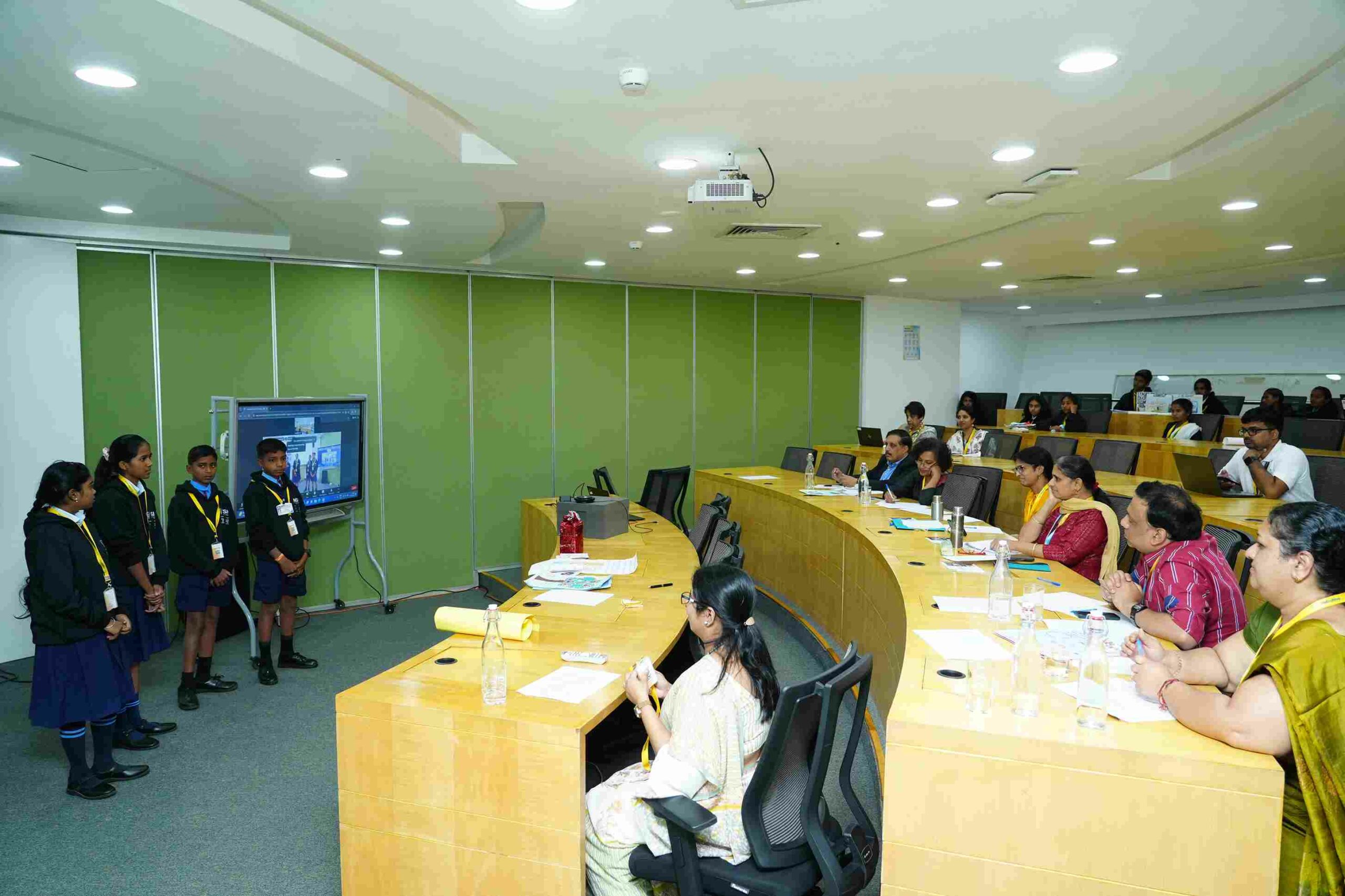
The practical application of their learning was evident in projects like conducting electricity audits and promoting renewable energy while health education was delivered creatively through puppet shows and dance.
Technology became the key as teams featured innovations that included an AI model for healthcare and a food storage auto-prototype. Addressing societal issues, students also tackled gender equality and developed a career guidance website based on individual personalities — demonstrating the relevance and innovation of their ideas.
Anand Sri Ganesh, CEO of NSRCEL, IIM Bangalore, said, “There are three key aspects to consider — initiative, a skill where you believe in an idea enough to bring it to life, that goes beyond textbook learning; implementation, the practical execution of that idea; and influence, the capacity to create change and improve our communities.”
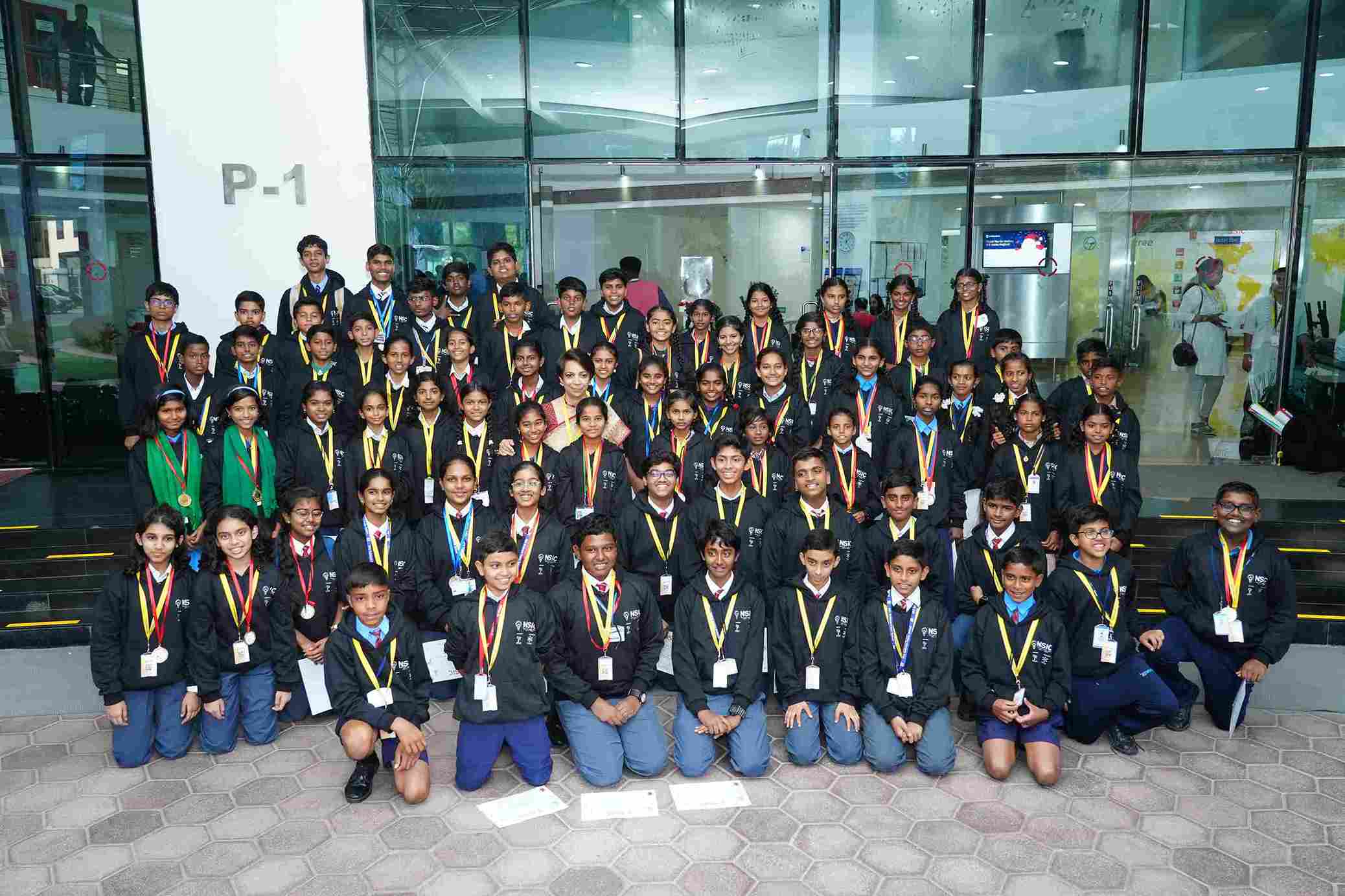
As NSIC Season 7 came to an end, with its award ceremony for the best community-centric solutions, it was evident that this event signified the beginning of a journey. A journey where every young mind, whether from the remotest part or a bustling urban centre, is empowered to make a difference.
Rajesh Patel, VP and Global Head, Low Code Unit, LTIMindtree, added, “NSIC serves as a testament to the power of education in nurturing future leaders who are ready to tackle the world’s challenges head-on.”
Edited by Pranita Bhat
No comments:
Post a Comment